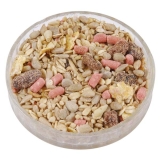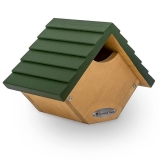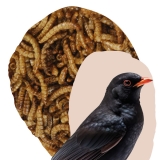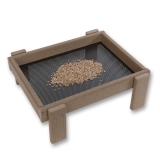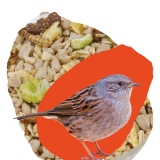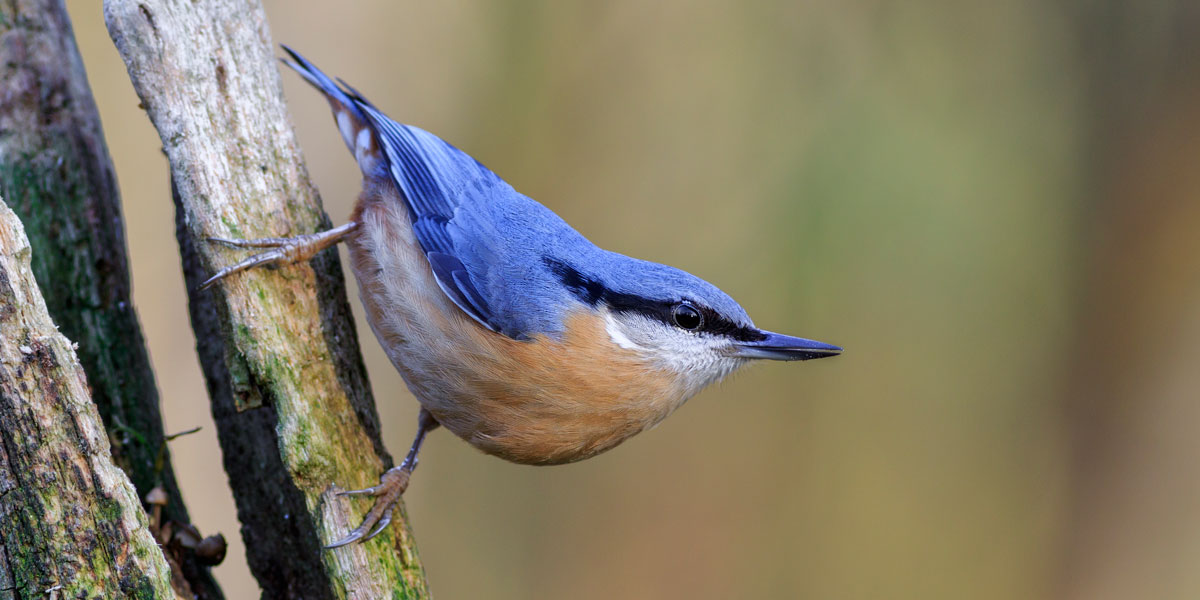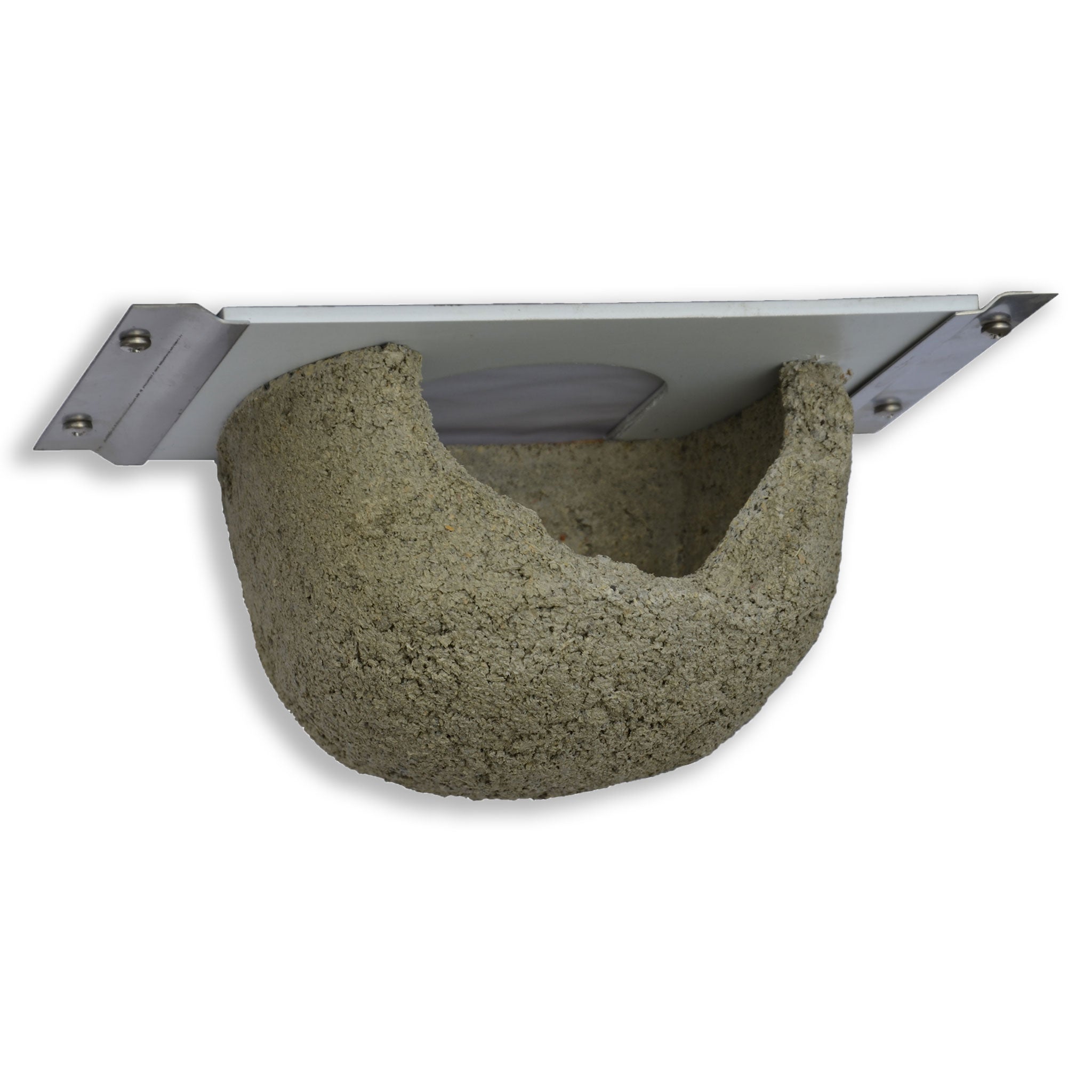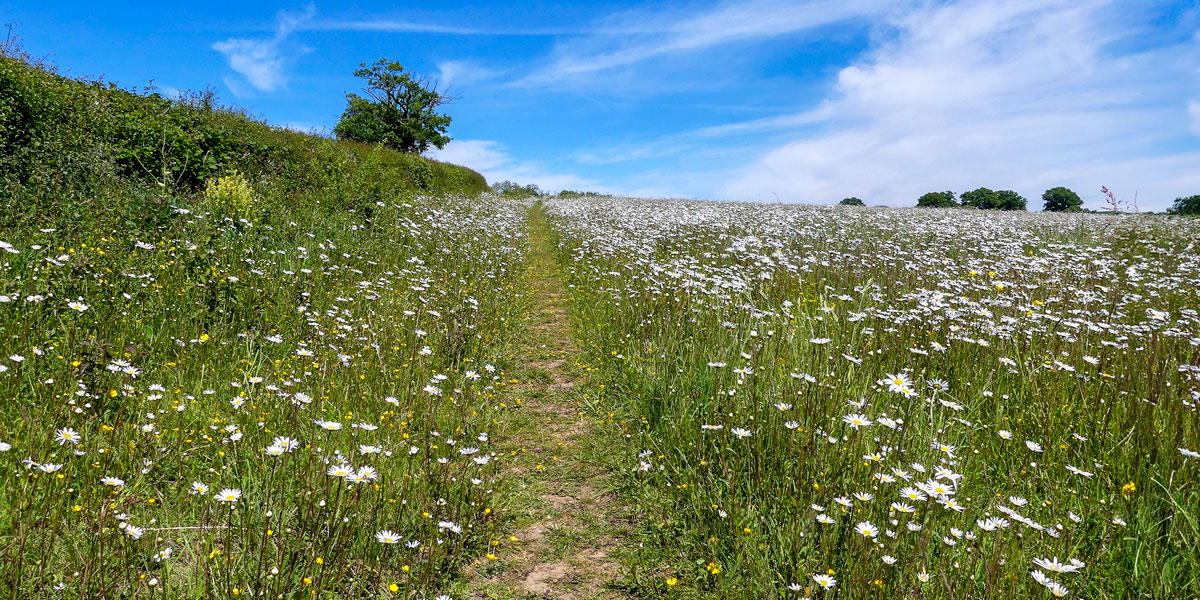Explore Our Garden Wildlife Blog
Browse or search by Category or Keyword below, alternatively click on any Tag to see related articles.


What do robins eat? Feeding robins throughout the year
By Ark Wildlife
11th November 2022
Last Updated: 27th March 2024
They are a uniquely beloved sight in gardens up and down the country, and it’s hard to imagine a mantelpiece full of Christmas cards without at least one, but our red-breasted friends are in growing danger. These beautiful birds do not migrate south for the colder months, leaving them at the mercy of the icy British winter – and with safe, warm habitats in increasingly short supply on our shores, it’s more important than ever to do what you can to protect robins.
So how can you look after robins in your garden? Putting up suitable robin nest boxes is a good start, and leaving plenty of wild undergrowth for them to shelter in, rather than keeping everything pristine and tidy, makes a big difference too. After all, with hedgerows in the UK disappearing at a rate of 10,000 miles per year, safe places to keep warm are becoming more scarce by the day.
But feeding robins is also one of the best things you can do – supplementing their diet to add to what they can forage from the ground themselves and ensuring they get the nutrients they need. They are omnivores so will eat a wide range of food, giving you plenty of options when it comes to feeding them. Robins can lose up to 10% of their body weight just staying warm on a single winter’s night, so making sure its fat reserves are sufficiently topped up really can save a robin’s life.
How to feed robins in the garden
In most cases you can just place the right food on a small dish in your garden and watch robins make your little patch of land their home – you might be surprised by how many visit! However, there are ways that you can make feeding areas more accessible and secure. Ground bird feeders and adjustable bird feeders are the best garden feeders for robins for easy access, and bird tables can also be useful in helping protect the food from cats and other creatures. Covered bird feeders can prevent wood pigeons from stealing all the food that you put out, and help protect robins from predators.
What food do robins eat?
Robins eat a wide variety of foodstuffs, including worms, insects, seeds, nuts, dried fruit and Ark’s robin friendly bird mix depending upon the time of year. As winter nears, they tend to focus more on fatty and nutrient-rich food such as worms and insects.
As one of the nation’s favourite sights in the garden, people like to help robins out with a snack whenever they can. However, they can’t always rely upon our generosity, particularly in more sparsely populated areas. So, like all birds, they have to be resourceful and find nourishment where they can.
With large eyes for their size, robins are able to hunt in the weak light of early morning and dusk. They go looking under bushes and piles of leaves, in particular.
And what are they searching for? Worms, insects, seeds and fruit are all on the menu.
What fruit do robins eat?
Robins enjoy eating various small fruits that they find on garden trees and bushes. Berries such as blueberries, mulberries and holly are particular favourites of robins – along with other tree fruits including cherries and grapes from vines.
What do robins eat in winter?
During the winter robins tend to eat as many insects – especially beetles and earthworms – as they can, in order to store up nutrients for the cold weather. This is important as the soil becomes more solid and earthworms stay underground. There are many ways you can help them to supplement this diet – especially if there’s not much undergrowth in your garden meaning insects might be in short supply.
What should you feed robins in winter?
- Mealworms
- Calcium worms
- Suet pellets
- Fat balls (such as our premium bird fat balls)
- Fruits
- Berries
Our Winter Warmer mix can help robins and other birds to get everything they need to keep their energy up. Worms are particularly useful for robins at this time of year because they can help keep reserves topped up, as can fatty foods.
What do robins eat in summer?
In many ways a robin’s diet is the same all year round. In the summer, however, they may be less focused on the kinds of foods that will keep them warm during the colder weather – so berries and other fruits as well as sunflower seeds and other seeds are often on the menu.
Leaving fat balls out in warmer weather can cause them to go bad more quickly, so it’s important to keep a close eye on what you put out during the summer. In addition, your garden is likely to be at its busiest during the warmer months – so making sure the robins and their food are protected from other creatures is especially important.
What do robins eat in spring?
Spring is as good a time as any to see what kitchen scraps you can leave out in the garden for robins and other birds. The types of foods you can put out for robins include:
- Meaty kitchen scraps
- Cake and biscuit crumbs
- Dried fruit
- Mild cheeses
- Peanuts (either shredded or crushed)
These will be a welcome sight for robins in your garden any time of year!
What do robins eat in autumn?
As the colder months approach, you should turn your focus when feeding robins to the kinds of foods they’ll need during the winter. The sooner they can start stocking up on fats and mealworms, the better, so at this time of year you should get a good supply in and make sure there is food in your garden every day – a robin’s health can change drastically from one day to the next.
Header image credit – Mike Young
External sources/references






